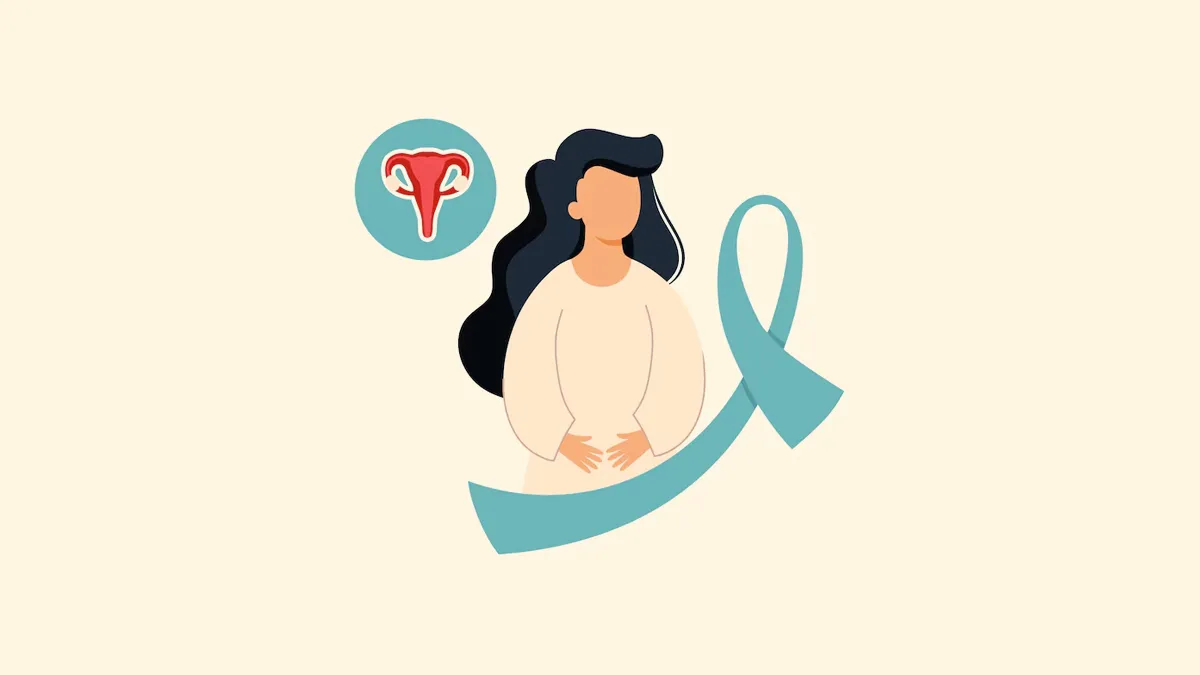
Cervical cancer is a serious condition that affects many women worldwide, with high morbidity and mortality rates. However, there are proactive steps that can be taken to prevent it. We spoke to Dr Kaishreen Khan, Consultant Obstetrician and Gynaecologist at Motherhood Hospitals, Kharadi, Pune, and she shared five key ways to reduce the risk of cervical cancer and maintain a healthy cervix.
Cervical cancer develops in the cervix, the lower part of the uterus that connects to the vagina. The condition occurs when the cells in the cervix undergo abnormal changes, often caused by the human papillomavirus (HPV), a common sexually transmitted virus.

HPV is the primary cause of cervical cancer, and while there are over 100 types of HPV, only a few are known to cause cancer. The risk factors for cervical cancer include having multiple sexual partners, weak immunity, sexually transmitted diseases (STDs), and obesity. Symptoms of cervical cancer may include vaginal bleeding, pelvic pain, painful intercourse, abnormal discharge, and issues while urinating.
Here are five ways to keep your cervix cancer-free, as per Dr Kaishreen Khan:
Dr. Khan stresses the importance of regular screenings to detect any abnormal cell changes before they become cancerous. "Regular screenings such as Pap smears and HPV tests can detect precancerous changes in the cervix," she says. These tests are essential for early detection and should be done at regular intervals. The recommended guidelines are to get an HPV test every 5 years, or a combined Pap and HPV test every 5 years, and a Pap test alone every 3 years. This proactive step helps in identifying issues early and can significantly reduce the risk of developing cervical cancer.

Another critical step in preventing cervical cancer is vaccination against HPV. Dr Khan explains, "The HPV vaccine is a vital strategy to reduce the risk of cervical cancer. The vaccine works best when administered before the onset of sexual activity, but it is also beneficial for those who may have been previously exposed to the virus." The vaccine is both safe and effective, offering protection against the types of HPV that cause most cervical cancers. Dr Khan advises getting vaccinated as per the recommended guidelines, which can be an important measure for both young girls and older women.

Practicing safe sex is another crucial way to reduce the risk of HPV transmission and, subsequently, cervical cancer. According to Dr. Khan, "Having sex with a partner who has had multiple sexual partners increases your risk of HPV exposure, which can lead to cervical cancer." Using barrier methods such as condoms during sexual activity helps reduce the chances of HPV infection and other STDs.
Don't Miss: HPV Vaccine: Everything About Cervical Cancer Prevention Answered By Expert

Dr. Khan also emphasises the importance of open conversations about sexual health. "Cultivating a supportive environment where women feel comfortable discussing sexual health leads to more informed choices and early interventions," she explains. When women are educated and aware of the risks, they can make better decisions about their health. Regular check-ups and consultations with healthcare providers, especially if there are symptoms such as abnormal bleeding or discharge, are vital. Early intervention can make a significant difference in preventing cervical cancer.
One of the most effective lifestyle changes that women can make is quitting smoking. Dr. Khan notes that smoking significantly increases the risk of cervical cancer. "Quitting smoking is essential for women to reduce their risk of developing cervical cancer and to maintain overall health," she advises. Smoking weakens the immune system, making it harder for the body to fight off HPV infections and increasing the likelihood of cancerous cell changes in the cervix.

Cervical cancer is preventable, and following these five expert-backed steps can significantly reduce the risk.
Don't Miss: Cervical Cancer: Indian Government To Make HPV Vaccines Available In Primary Schools
Image Credits: Freepik
If you liked this story, then please share it. To read more such stories, stay connected to HerZindagi.
Also watch this video
Herzindagi video
Our aim is to provide accurate, safe and expert verified information through our articles and social media handles. The remedies, advice and tips mentioned here are for general information only. Please consult your expert before trying any kind of health, beauty, life hacks or astrology related tips. For any feedback or complaint, contact us at [email protected].